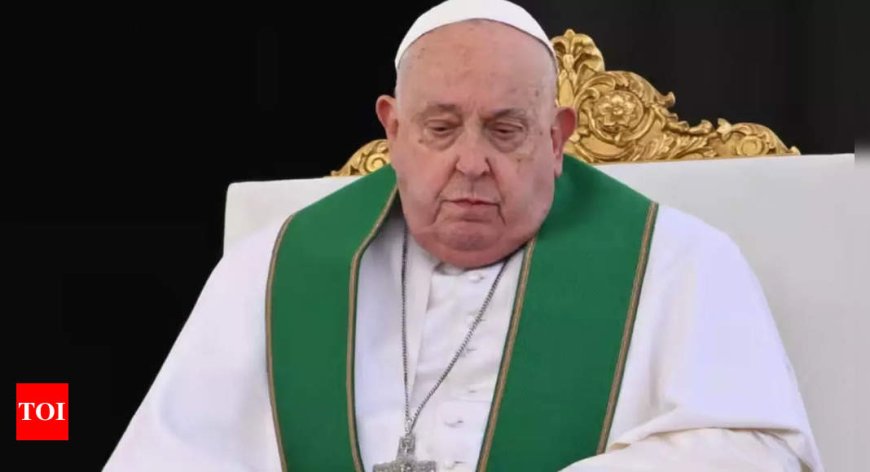Pope Francis is in critical condition: What is sepsis, the condition doctors fear the pontiff may develop?
Pope Francis, 88, is in critical condition due to double pneumonia and a severe lung infection. While receiving high oxygen flows and blood transfusions, doctors fear the onset of sepsis, which could further complicate his condition given his advanced age and respiratory issues.

Pope Francis is in Critical Condition: What is Sepsis, the Condition Doctors Fear the Pontiff May Develop?
News by dharmyuddh.com
An Overview of Pope Francis’ Healthy Concerns
Pope Francis, the head of the Roman Catholic Church, has recently been reported to be in critical condition, raising global concerns about his health. Medical professionals are particularly worried about the possibility of sepsis, a life-threatening condition that can arise from infections and can lead to organ failure. Understanding sepsis is crucial in grasping the gravity of the pontiff's situation.
What is Sepsis?
Sepsis occurs when the body’s response to an infection causes widespread inflammation. This can lead to a cascade of changes in the body that can damage organs and tissues. Sepsis is sometimes referred to as septicemia when bacteria are present in the blood, but it’s important to note that sepsis can also result from viral or fungal infections. Prompt recognition and treatment are essential, as delays can lead to severe complications.
Symptoms and Risks of Sepsis
The symptoms of sepsis can vary, often starting with a simple infection. Common signs include high fever, increased heart rate, rapid breathing, and confusion. In older adults or those with weakened immune systems, symptoms may be subtler. The risk of developing sepsis increases significantly for individuals with chronic health conditions, such as diabetes or advanced age—in which Pope Francis may fall into a vulnerable category due to his age.
Importance of Timely Medical Intervention
Timely diagnosis is crucial for treating sepsis effectively. If diagnosed early, treatment usually involves intravenous antibiotics, fluids, and possibly medications to stabilize blood pressure. Special attention may be paid to organ function, and in severe cases, patients may need additional interventions like surgery.
Global Reactions and Support for Pope Francis
The news of Pope Francis’ critical health condition has sparked reactions worldwide. Many religious leaders, followers, and health professionals are sending their prayers and well wishes for the pontiff’s recovery. The Catholic community remains hopeful that with prompt and effective medical intervention, he will overcome this health scare.
Conclusion: Understanding Sepsis and Its Implications
The possibility that Pope Francis could develop sepsis serves as a reminder of the fragility of health—especially for those in leadership roles. Families and individuals should be aware of the symptoms of sepsis and the critical importance of seeking medical help quickly. As updates continue to emerge regarding the pontiff’s condition, the global audience will be watching closely.
For more updates, visit dharmyuddh.com. Keywords: Pope Francis health updates, sepsis in Pope Francis, what is sepsis, importance of sepsis awareness, critical condition of the pope, understanding sepsis symptoms, global reactions to Pope Francis health, treatment for sepsis, health concerns for elderly, Catholic Church news.







